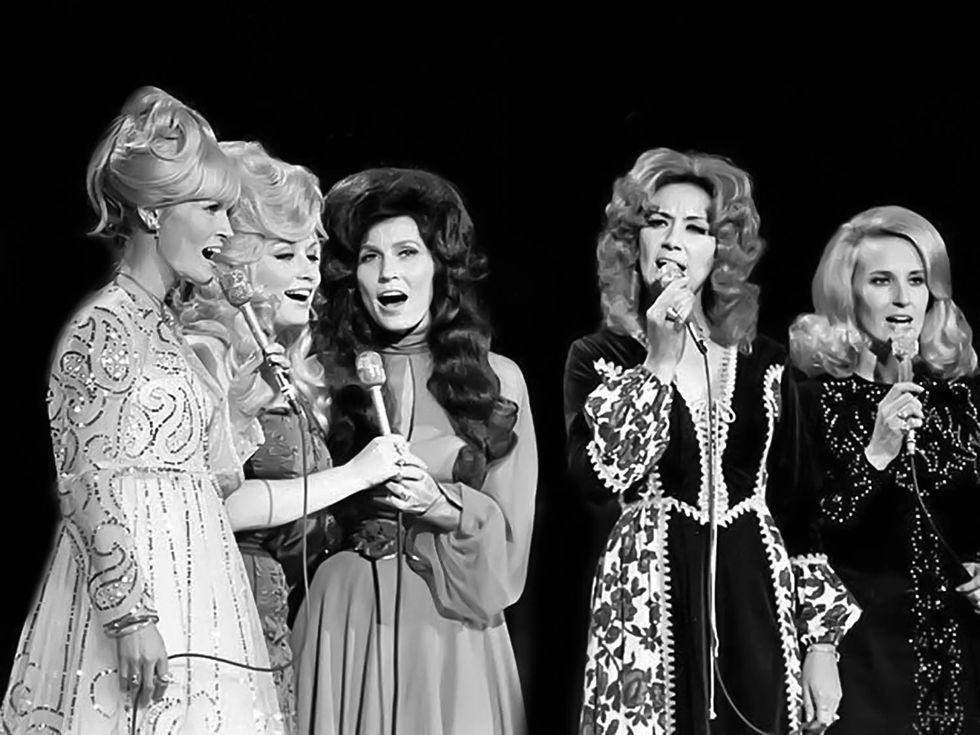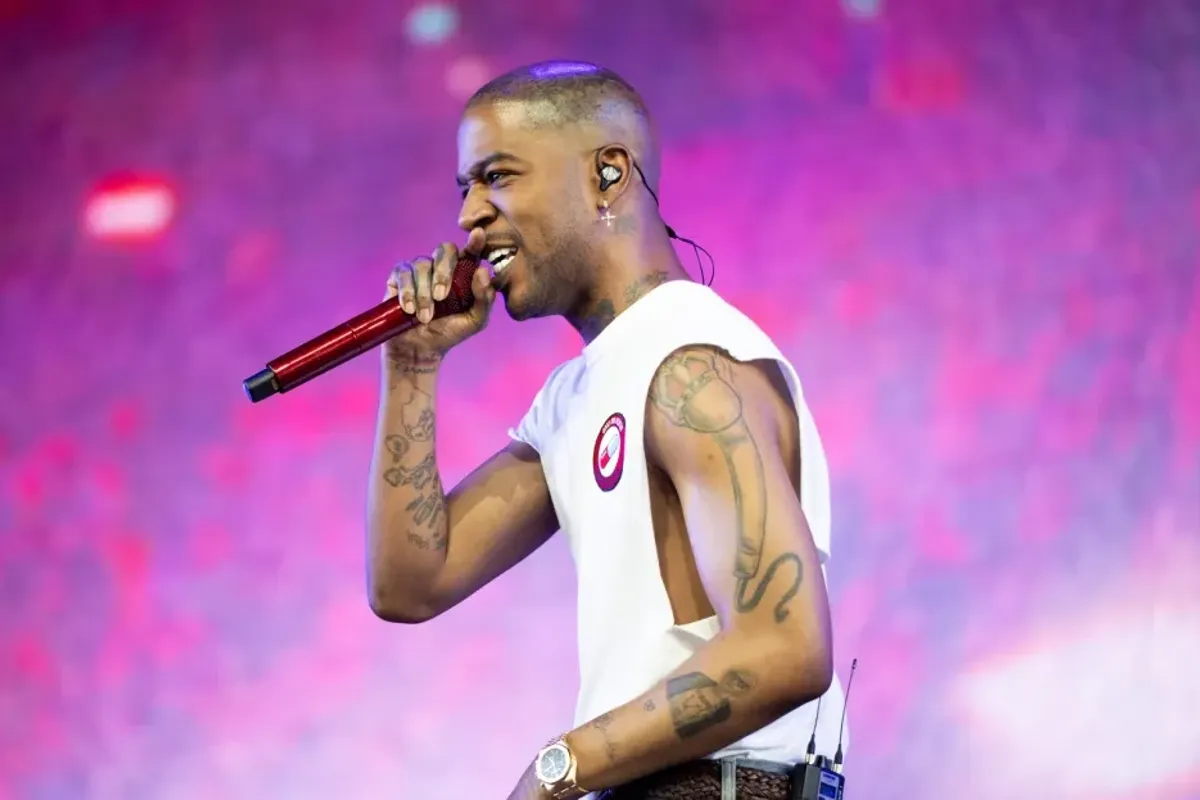PBS: Iconic Women of Country Music
Canadian Barb Hall produced and directed a new public television documentary on legendary female country artists. Learn more about their remarkable lives and the show here.

By Bill King
Canadian Barb Hall, is a Producer and Vice President of T.H. Entertainment, and producer/director of IconicWomen of Country Music alongside Transform Films, premiering June 1, on PBS Nashville - and, in our area, June 6 on WNED Buffalo.
Hall manages the company’s Canadian productions and operations. Also, she is the founder and President of the international rights clearance company: Clear Cut Inc. Barbara’s most recent project was producing and directing When Patsy Cline Was Crazy for American Masters on PBS. We spoke this past week about the upcoming documentary and life in Nashville.
Bill King: How are you and pandemic getting on?
Barb Hall: I can go out and get a tattoo and my nails done if I want to. The logic in that, I’m not sure of but so far so good. We are pretty much holed up and using common sense. We were a little bit sick over Christmas and wondered if we had it, then we got out in the world, walking in a park and feeling fine.
B.K: I’m fascinated by this documentary, Iconic Women of Country Music. What’s this all about?
B.H: I love these women. I did a doc on Patsy Cline, and these women are incredible to me. I was developing this project called Women Who Rock Country – a bit of a docu-series. PBS called, and we’d done a lot of work with public television down here in the U.S. and asked if we could do a tribute to some of the legacy women of country music. Can you do that? I said with one hand tied behind my back. They replied great; we need it for June pledge. I thought, oh, that’s right around the corner. Then they say you have to deliver it in April; this was the end of December, the day before the holidays. Luckily, we got all of the principals to do interviews right before the shutdown. Then it was just trying to edit during the shutdown. All of the other business of the program can be done from anywhere.
B.K: You worked from home?
B.H: Yes. A few years ago, Greg and I bought four acres that had two buildings on it. One is our office and one we live in. We don’t have to go anywhere. We didn’t feel much of anything during these times – we are pretty safe out here. We’re in the woods.
It’s the stories to me. I love their music, but it was the stories of these women I found fascinating, but I had only fifty-eight minutes to tell them, which is even longer than most television hours. PBS is commercial-free, so it’s fifty-eight minutes. The DVD is a little bit longer. I added Bobbie Gentry and the Carter Family. I loved every second of this, and what an honour. We got it all delivered, and it goes to air on June 6, on WNED and around the country.
B.K: I was in Nashville in 1980 and hanging out with legendary producer Bob Johnston who invited guitarist Danny McBride and me over to the Grand Ole Opry for a taping of Johnny Cash salutes the women of Nashville, some forty artists. During rehearsal, Johnny jumped through the burning ring of fire. You can’t beat that. I remember standing next to Minnie Pearl and overhearing a conversation where she says, “ You know, that Emmylou Harris should cut her hair. She looks like a hippie.”
B.H: We feature Minnie Pearl, Lynn Anderson, Barbara Mandrell, Patsy Cline, Dolly, Loretta, Dottie West, Brenda Lee, Kitty Wells, Connie Smith. We did fourteen. That hour you can imagine each gets five minutes, which is a killer for me. In the DVD version, I made their sections longer.
The women I interviewed who paid tribute to them are Terri Clark, Pam Tillis – she knows the history because of her dad, Mel, Trisha Yearwood, Wynonna Judd, Lori Morgan, Irlene Mandrell - I needed somebody talk about the Mandrell story. Kathy Mattea, Kellie Pickler - mostly her because I wanted somebody young who can make it relevant. Ten artists paying tribute to the fourteen women.
I picked one song from each of the artists and sort of looked at them through the lens of that song. We needed to see them all perform a little something. The only non-singing one is Minnie Pearl. She wasn’t a singer, but she was a player, a total powerhouse. All of the artists have so much respect for her. I had to be careful; it could have been a straight-up lovefest for all of these women. I wanted to get a bit deeper into their stories.
B.K: Many had complicated lives. Where they came from, their roots and rise to stardom.
B.H: Most of them had those kinds of stories. At least a Brenda Lee had family members, and yes, she was a kid, but a least she had folks watching out for her. You have women like Tammy Wynette, who already had a couple of kids and was working as a hairdresser in Arkansas and had a voice that can’t be denied and she just figured it out and all of these bad husbands too. Yet, her main song was Stand By Your Man, which is ironic. Remember, she was married four times.
Terri Clark made this comment, I remember. She was going on about Stand By Your Man, and she says, “You know, she probably should have called it Stand By Your Men instead.”
What an honour it is to tell their stories a little bit. My hope is the audience will look at this and want to go away and dig into not only their stories but their music. The music is so relevant and helped changed women’s lives. That gave voice to their lives. They were sharing their experiences, and it was different from what else was happening in country music at the time. They were referred to as girl singers.
My hope is I get to do a sequel. There’s definitely another fourteen women after that and after that another fourteen. They all have the same kind of remarkable stories. These women were unstoppable despite the odds, and then they had to go home and do all of the domestic stuff. It was a time before they had dishwashers. They took care of the kids. There’s this notion these women made a lot of money, had a bus and a nanny. It isn’t true. They didn’t have any of this support stuff. They juggled more than we can even imagine today.
Trisha Yearwood said it really well when she stated, “Yes, it is unfair to women today, country radio is not fair to women," yet she imagined Loretta saying, “Girls, you think this is hard, you should have tried this fifty years ago.”

















